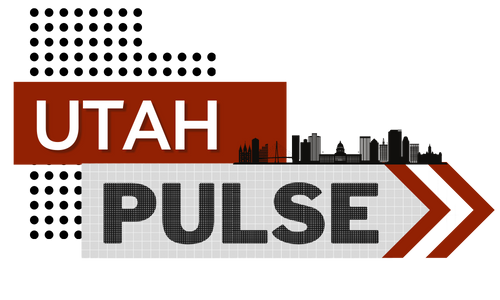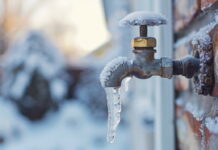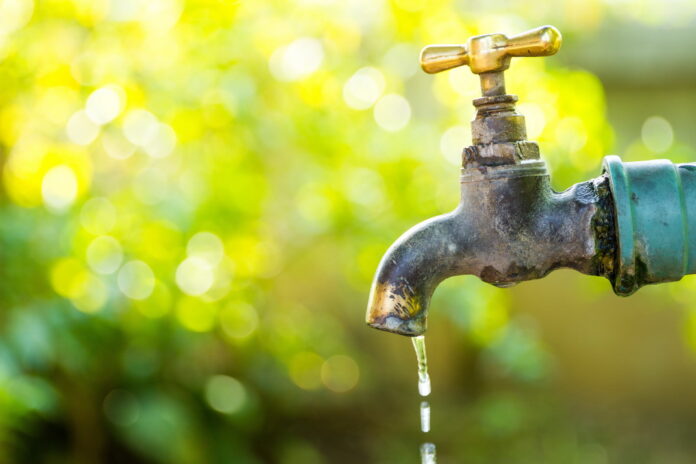
Local water utilities are increasingly signing property owners up for voluntary text alerts. The goal is to alert homeowners to potential leaks by monitoring water consumption and sending a text message if it looks suspiciously high. Such alerts are made possible with state-of-the-art water meters that can now be accessed remotely.
The big question is this: does a homeowner really need such alerts from the local water utility? In a word, no. A homeowner’s water service will continue functioning normally with or without complementary texts. But there are legitimate reasons for signing up for the service. There are also alternatives.
The Exterior Water Meter
Every American home with municipal water service is equipped with a line that runs from the house to the water main at the street. The two lines connect at a water meter. Billing is based on the meter’s measurements.
Thanks to digital technology and the internet of things (IoT), modern water meters are connected devices that can be monitored and managed remotely. They can also be monitored by emergency alert systems as well. When a system registers an unusually large volume of water at a particular meter, it can send a text message to the owner of the house that meter is assigned to.
Key Benefits of the Service
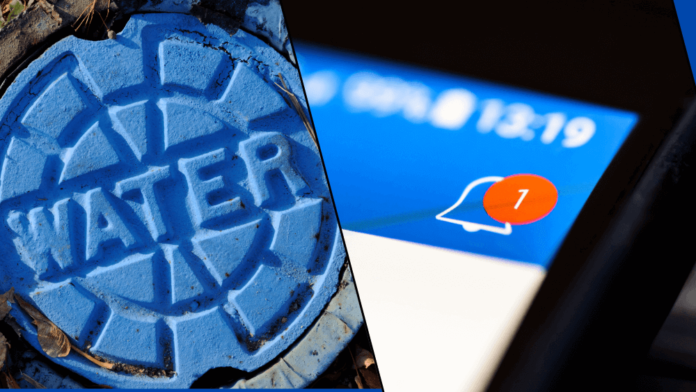
So why sign up for water utility text alerts? The most important reason, according to Salt Lake City’s Superior Water & Air, is the ability to be immediately notified in the event of a leak. As a leading plumbing contractor in the Salt Lake City and Washington areas, Superior knows first-hand what can happen if serious leaks go unnoticed for several hours.
Exterior leaks can lead to significant erosion and property damage. Interior leaks can damage walls, floors, carpets, HVAC equipment, and so on. And in so many cases, early detection and response is the key to preventing catastrophic failure.
Here are some other benefits of text alerts:
- Personalized thresholds – Many local utilities offering alert services also allow consumers to set personalized water thresholds. Exceeding the threshold will trigger an alert. Such an alert doesn’t necessarily mean a leak. But it does suggest that a family is using more water than intended.
- Automatic shutoff – Combining the text alert service with an automatic shutoff valve can stop minor problems before they become major. As soon as an alert is received, the shutoff valve can be engaged. End of story.
- Other types of alerts – Water utility alerts are rarely confined to excess water consumption. Utilities also send alerts to inform consumers of widespread service issues or plans for system maintenance. The alerts are utilized to keep consumers in the loop.
Utility alerts are not mandatory. But they can be beneficial. As long as a water meter is connected to a capable system, getting alerts is probably a good idea. If the service becomes annoying thanks to too many alerts, a consumer can always unsubscribe.
Why Some Homeowners Resist Utility Alerts
Although text alerts can be helpful, not every homeowner is eager to enroll. Privacy is one of the most common concerns. Some consumers hesitate to give utilities access to their usage data, fearing that too much monitoring could eventually lead to stricter policies or even penalties for “excessive” consumption.
Another point of resistance is cost. While many utilities currently offer text alerts for free, future upgrades to the system could carry fees. Homeowners wonder if what is free today might later become an added line item on their bill. There is also the question of alert fatigue, too many unnecessary notifications can cause people to stop paying attention altogether.
Still, for many, the peace of mind of knowing that leaks will be caught quickly outweighs these concerns.
Real-World Scenarios Where Alerts Prove Valuable
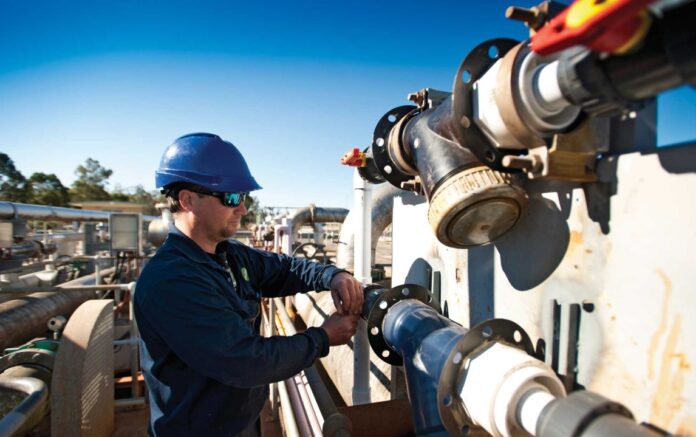
Text alerts may sound like a minor convenience, but in practice they can make the difference between a small repair bill and thousands of dollars in damage. Consider a few situations:
- Vacation homeowners – A leak in a house that sits empty for weeks can destroy drywall and flooring before anyone notices. Alerts make sure problems are not left unchecked.
- Rental properties – Landlords can’t always rely on tenants to notice or report leaks quickly. Utility alerts give landlords a backup system for detecting issues.
- Busy families – Parents balancing careers and childcare often don’t have time to constantly monitor utility usage. Automated notifications simplify things.
Each of these scenarios shows how alerts add an extra layer of protection that most people don’t think about until it’s too late.
Comparing Utility Alerts and Smart Home Systems
While both utility-based alerts and smart home systems aim to protect property, they do so in slightly different ways.
- Utility alerts – Provided by the local water company, usually free or low-cost, rely on meter data, and may include alerts about service interruptions or maintenance.
- Smart home systems – Purchased and installed privately, allow more control, offer multiple sensor locations inside the home, and often integrate with other smart devices like security systems or thermostats.
A combined approach may be best. Using utility alerts as a broad safety net while adding smart home sensors for specific areas like under sinks or near water heaters gives homeowners the strongest defense.
Long-Term Value of Early Detection
The financial value of early detection cannot be overstated. Water damage claims are among the most common types of homeowner insurance claims in the United States, and insurance companies often raise premiums after repeated incidents. Avoiding just one major leak could save a family thousands in repairs and higher insurance costs.
Beyond money, there is also the issue of health. Moisture from leaks can create mold, which is harmful to indoor air quality. Families with children or elderly members are especially at risk from hidden mold growth. Alerts, whether from a utility or smart system, help prevent conditions that endanger both property and health.
A Practical Recommendation for Homeowners
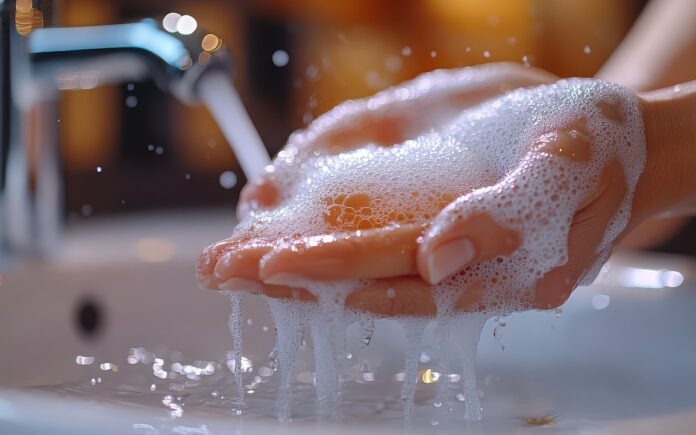
If you are deciding whether to sign up for water utility alerts, consider your specific situation. Do you travel frequently? Do you own multiple properties? Would you benefit from quick notifications about service interruptions? If the answer is yes to any of these questions, signing up makes sense.
For those worried about privacy or who prefer more control, investing in smart home water sensors and an automatic shutoff valve is a reliable alternative. In the end, the decision does not need to be one or the other. Many homeowners benefit from using both systems together, creating a layered safety approach.
The Smart Home Alternative
You might like the idea of water system alerts but not be keen on giving the local utility more access to private information. If that’s the case, there are alternatives within the smart home space. For example, water sensors installed in strategic locations throughout the home can alert you to any leaks. You can still install an emergency cutoff valve it gives you the ability to shut off the water remotely.
Water alerts are generally a good idea overall. Whether they come from the local utility or your own smart home system, alerts make you aware of problems with your water lines and plumbing.
